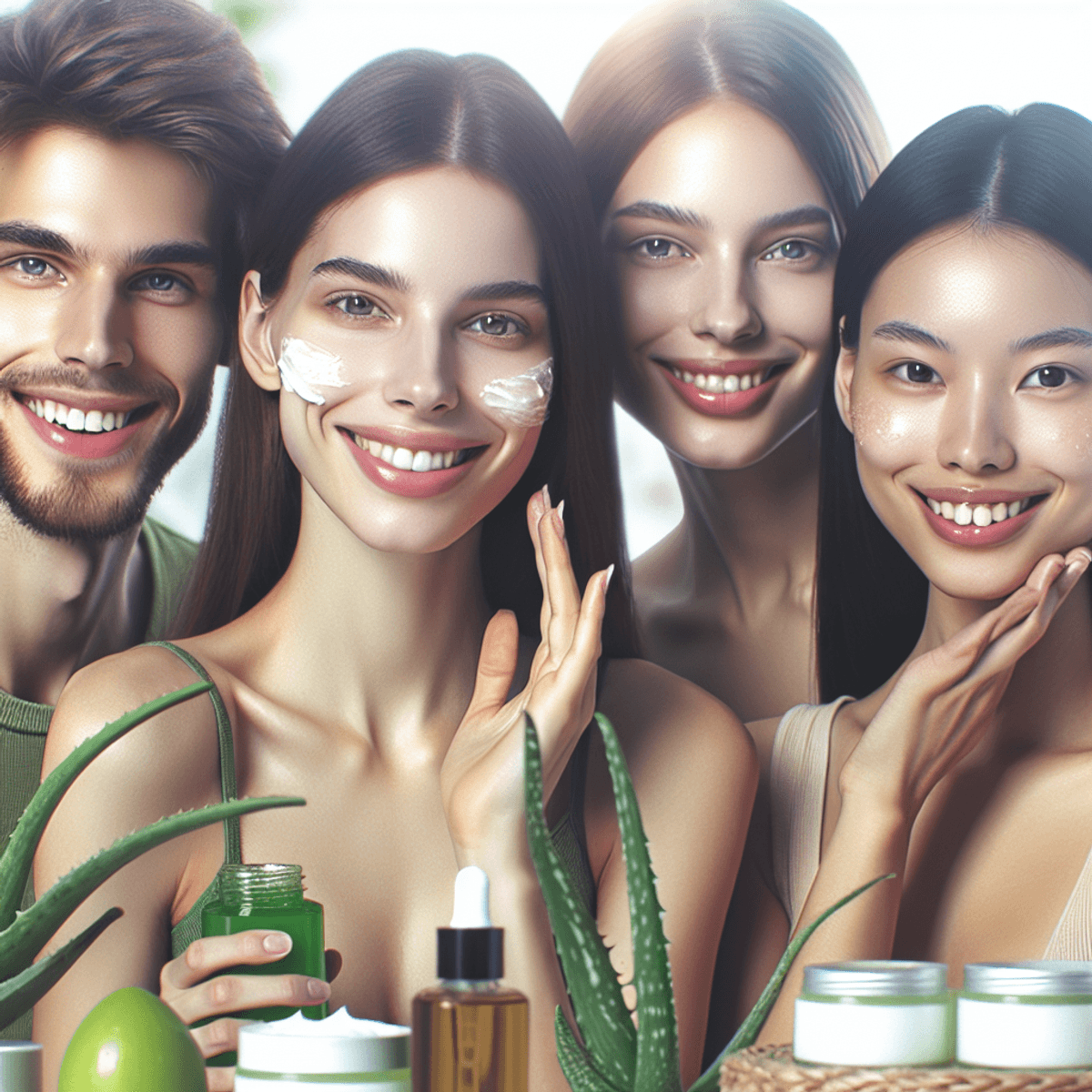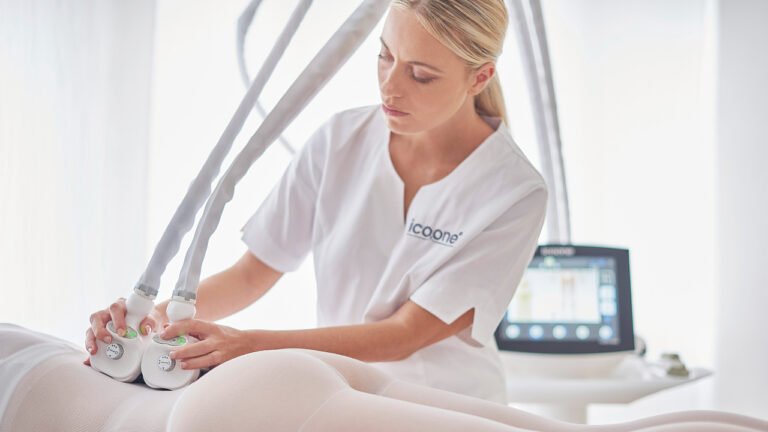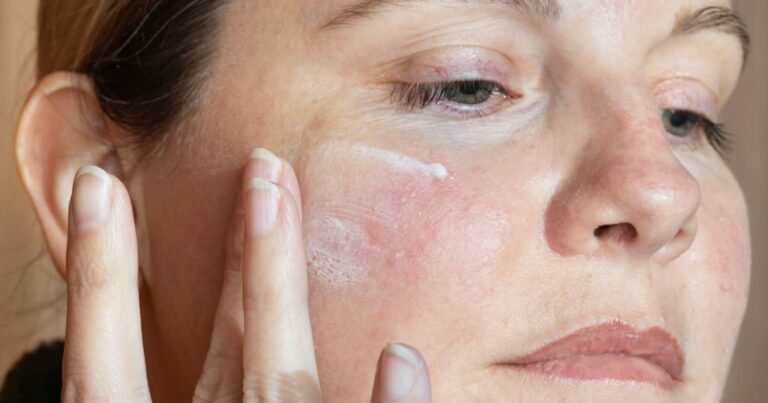How to remove pimples naturally and permanently

Introduction
How to remove pimples naturally and permanently is a common concern for many individuals struggling with acne. Pimples, or acne, can be caused by a variety of factors including excessive oil production, clogged pores, and bacterial infections. This article focuses on natural remedies that aim to reduce inflammation, control oil production, and promote skin healing.
Natural solutions are often preferred because they typically have fewer side effects compared to chemical treatments. These methods not only target the root causes of pimples but also promote overall skin health. By incorporating certain lifestyle changes and home remedies, you can achieve clearer skin without relying on harsh chemicals or expensive treatments.
In this guide, you’ll find detailed information about:
- Ice Cubes: Reducing swelling and redness.
- Cleansing Techniques: Maintaining cleanliness to prevent clogged pores.
- Oil-Free Skincare Products: Choosing non-comedogenic items.
- Green Tea Application: Utilizing its anti-inflammatory properties.
- Honey as a Natural Remedy: Harnessing its antibacterial benefits.
- Tea Tree Oil Treatment: Applying this antimicrobial solution.
- Aloe Vera Gel Application: Soothing irritated skin.
- Apple Cider Vinegar Solution: Balancing skin pH levels.
Additionally, we’ll discuss the importance of a healthy diet, proper hydration, and stress management techniques. These holistic approaches ensure that you not only treat existing pimples but also prevent future breakouts effectively.
Understanding Pimples and Their Causes
Pimples, commonly known as acne, arise from several factors including excessive oil production, clogged pores, and bacterial infections. Understanding these causes can help you effectively address and prevent breakouts.
1. Ice Cubes
How ice can help reduce swelling and redness associated with pimples
Applying ice to pimples is a simple yet effective method to reduce inflammation and redness. The cold temperature constricts blood vessels, which can decrease the swelling around the affected area. Ice also numbs the skin, providing temporary relief from pain caused by inflamed pimples.
Methods for applying ice to the affected areas
To use ice cubes as a remedy for pimples:
- Wrap an Ice Cube: Take a clean cloth or paper towel and wrap an ice cube in it. Direct contact between ice and skin can cause frostbite or damage.
- Apply to Affected Area: Gently press the wrapped ice cube against the pimple for about 1-2 minutes.
- Take Breaks: Remove the ice for a few minutes if your skin starts feeling too cold, then reapply.
- Repeat as Needed: Do this process several times a day to keep inflammation under control.
This method is particularly useful when you need quick relief from a visibly swollen pimple.
2. Cleansing Techniques
Maintaining cleanliness is crucial when aiming to prevent and treat pimples. Regular cleansing helps remove excess oil, dirt, and dead skin cells that can clog pores.
Recommended products for a gentle cleansing routine:
- Gentle Cleansers: Opt for sulfate-free cleansers that do not strip your skin of its natural oils.
- Exfoliants: Use mild exfoliants containing salicylic acid or glycolic acid to help remove dead skin cells without causing irritation.
- Toners: Alcohol-free toners can help balance your skin’s pH level while removing residual impurities.
A consistent cleansing routine helps keep your pores clear, reducing the chances of new pimples forming.
3. Oil-Free Skincare Products
Using non-comedogenic or oil-free skincare products is beneficial for those prone to pimples. These products are specifically formulated not to clog pores, reducing the risk of breakouts.
Suggestions for suitable oil-free products:
- Moisturizers: Look for lightweight, water-based moisturizers that hydrate without adding excess oil.
- Sunscreens: Choose mineral-based sunscreens that protect your skin without causing breakouts.
- Makeup Items: Non-comedogenic foundations and powders keep your complexion clear while providing coverage.
Incorporating these products into your daily regimen ensures you’re treating your skin kindly while avoiding exacerbating acne issues.
4. Green Tea Application
Green tea boasts numerous benefits for skin health due to its rich antioxidant properties. It can reduce oil production, making it an excellent natural remedy for pimples.
Step-by-step guide on using green tea topically:
- Brew Green Tea: Steep green tea leaves in boiling water for 3-4 minutes.
- Cool Down: Allow the tea to cool completely before using it on your skin.
- Apply with Cotton Ball: Dip a cotton ball into the cooled tea and apply it directly onto your face or specific pimple-prone areas.
- Leave On & Rinse Off: Let it sit on your skin for about 10-15 minutes before rinsing off with lukewarm water.
Regular application can help manage oil levels and soothe inflamed areas, promoting clearer skin over time.
Understanding pimples involves recognizing their root causes like excessive oil production, clogged pores, and bacterial infections. Addressing these through natural remedies such as ice cubes can significantly reduce irritation and inflammation while promoting healthier skin practices at home.
2. Cleansing Techniques
Keeping your skin clean is essential to preventing and treating pimples. Pimples often occur due to too much oil, blocked pores, and bacterial infections. A regular cleansing routine helps to remove impurities and bacteria that lead to acne.
Key Points:
- Use a gentle cleanser to avoid irritating the skin.
- Cleanse your face twice daily – once in the morning and once before bed.
- Avoid harsh scrubbing which can lead to inflammation and worsen acne.
Recommended Products:
- Cetaphil Gentle Skin Cleanser: Known for its mild formulation, it effectively removes dirt without clogging pores.
- Neutrogena Oil-Free Acne Wash: This product is designed specifically for acne-prone skin, targeting excess oil while being gentle on the skin.
For those wondering how to get rid of pimples naturally at home, incorporating these cleansing techniques into your daily routine can significantly help reduce irritation and prevent clogged pores.
3. Oil-Free Skincare Products
Using non-comedogenic (oil-free) skincare products is essential in managing and preventing pimples. These products are specifically formulated to not clog pores, reducing the likelihood of breakouts caused by excessive oil production and bacterial infections. Incorporating oil-free products into your daily routine helps maintain clear skin without contributing to further irritation or inflammation.
Benefits of Non-Comedogenic Products
- Prevents Clogged Pores: Reduces the risk of acne development.
- Minimizes Excessive Oil Production: Keeps skin balanced and less oily.
- Reduces Irritation: Suitable for sensitive skin types prone to breakouts.
Recommended Oil-Free Skincare Items
1. Moisturizers
- Neutrogena Hydro Boost Water Gel: Lightweight and hydrating.
- CeraVe Facial Moisturizing Lotion: Contains ceramides that restore the skin barrier.
2. Sunscreens
- EltaMD UV Clear Broad-Spectrum SPF 46: Calms acne-prone skin while providing sun protection.
- La Roche-Posay Anthelios Melt-in Milk Sunscreen SPF 60: Non-greasy and ideal for sensitive skin.
3. Makeup Products
- Maybelline Fit Me Matte + Poreless Foundation: Controls shine without clogging pores.
- NYX Professional Makeup Matte Finish Setting Spray: Keeps makeup in place, reducing oiliness throughout the day.
Incorporating these non-comedogenic options into your routine can significantly help in managing pimple-prone skin, ensuring a balanced and healthy complexion.
4. Green Tea Application
Green tea is well-known for its beneficial properties in promoting skin health. One of the key components, catechins, offers antioxidant and anti-inflammatory benefits that can help manage pimples effectively. Green tea can reduce oil production, a significant factor in the development of acne.
Step-by-Step Guide to Using Green Tea Topically:
- Brew the Tea: Start by brewing a cup of green tea using either a tea bag or loose leaves. Allow it to steep for about 5 minutes.
- Cool Down: Let the brewed tea cool to room temperature.
- Application:As a Toner: Dip a cotton ball into the cooled green tea and apply it gently to your face, focusing on pimple-prone areas.
- Spot Treatment: For concentrated treatment, soak a cotton swab in green tea and dab it directly onto individual pimples.
- Face Mask: You can also create a green tea face mask for deeper penetration and more intensive treatment.
- Leave On: Allow the green tea to remain on your skin for at least 10-15 minutes before rinsing off with lukewarm water.
- Frequency: Repeat this process twice daily for optimal results.
Using green tea topically can help reduce irritation and inflammation associated with pimples, aiding in their natural and permanent removal. This remedy is particularly useful when dealing with excessive oil production and clogged pores, common culprits behind acne breakouts.
5. Honey as a Natural Remedy
Honey is known for its anti-inflammatory and antibacterial properties, making it a powerful natural remedy in treating pimples. These properties help in fighting the bacterial infections that contribute to acne development, while also reducing irritation and inflammation.
Benefits of Honey for Pimples
- Anti-inflammatory: Reduces redness and swelling associated with pimples.
- Antibacterial: Helps eliminate bacteria causing acne, preventing future breakouts.
- Hydration: Moisturizes the skin without clogging pores, aiding in skin healing.
How to Use Honey for Treating Pimples
Creating a honey-based mask or spot treatment is simple and effective:
- Honey Mask:
- Apply a thin layer of raw honey to your entire face.
- Leave it on for 15-20 minutes.
- Rinse off with warm water and pat dry.
- Spot Treatment:
- Dab a small amount of honey directly onto the pimple.
- Leave it on for at least 30 minutes or overnight for better results.
- Rinse off with warm water.
Using honey regularly can help you get rid of pimples naturally by addressing the root causes, such as bacterial infections and inflammation, promoting clearer skin over time.
6. Tea Tree Oil Treatment
Tea tree oil is an effective treatment for acne lesions, largely due to its antimicrobial properties that combat bacterial infections. It’s particularly useful for reducing irritation and inflammation associated with pimples.
Benefits of Tea Tree Oil:
- Antimicrobial Properties: Tea tree oil has been shown to kill the bacteria responsible for acne, helping to clear clogged pores and reduce excessive oil production.
- Anti-inflammatory Effects: This essential oil can soothe inflamed skin, making it less red and swollen.
Methods for Safe Application:
- Dilution: Always dilute tea tree oil with a carrier oil (like jojoba or coconut oil) before applying it to your skin. A common ratio is 1 part tea tree oil to 9 parts carrier oil.
- Spot Treatment: Use a cotton swab to apply the diluted mixture directly on the pimple. Leave it on for a few hours or overnight, then rinse off.
- Facial Toner: Mix a few drops of tea tree oil with water in a spray bottle. Use this as a facial toner to help maintain clear skin.
Avoid using undiluted tea tree oil as it can cause skin irritation. For sensitive skin, it’s advisable to conduct a patch test before widespread application.
Tea tree oil’s ability to reduce acne lesions makes it an excellent natural remedy for those looking for how to get rid of pimples naturally at home.
7. Applying Aloe Vera Gel
Aloe vera gel is well-known for its calming and healing effects, making it a great natural solution for skin prone to pimples. Pimples often occur due to factors like too much oil production, blocked pores, hormonal changes, lifestyle habits, and bacterial infections. Aloe vera helps tackle these problems by reducing irritation and inflammation.
Benefits of Aloe Vera Gel:
- Soothes Skin: Aloe vera’s cooling effect helps to calm inflamed skin.
- Reduces Redness: The anti-inflammatory properties minimize redness associated with pimples.
- Healing Properties: Promotes skin repair and reduces the appearance of pimple scars.
How to Use Aloe Vera Gel Effectively:
- Extract Fresh Gel:Cut a fresh aloe vera leaf and scoop out the gel using a spoon.
- Alternatively, use store-bought pure aloe vera gel.
- Cleanse Your Face:Wash your face with a gentle cleanser to remove dirt and excess oil.
- Apply the Gel:Apply a thin layer of aloe vera gel directly onto the affected areas.
- Gently massage the gel into your skin in circular motions.
- Leave On Overnight:For best results, leave the gel on your skin overnight.
- Rinse Off in the Morning:Wash your face with lukewarm water in the morning.
Adding aloe vera gel to your daily skincare routine can help calm irritated skin, decrease redness, and encourage healing. This natural remedy is especially useful for those wanting to eliminate pimples naturally at home without using harsh chemicals.
8. Apple Cider Vinegar Solution
Apple cider vinegar (ACV) is a popular natural remedy for acne due to its ability to balance the skin’s pH level and inhibit bacterial growth. When diluted properly, it can help manage excessive oil production, clogged pores, and bacterial infections.
Benefits of Apple Cider Vinegar for Acne
- Balances pH Level: ACV helps maintain an optimal skin pH, which can prevent pimples from forming.
- Inhibits Bacterial Growth: Its antimicrobial properties reduce the presence of acne-causing bacteria.
- Controls Oil Production: By regulating sebum production, it minimizes clogged pores.
How to Use Apple Cider Vinegar Safely
- Dilution is Key: Always dilute ACV with water in a 1:3 ratio (one part ACV to three parts water) to avoid skin irritation.
- Patch Test: Perform a patch test on a small area of your skin to ensure you don’t have any adverse reactions.
- Application Method:
- Soak a cotton ball in the diluted solution.
- Gently dab it onto the affected areas of your face.
- Leave it on for 5-10 minutes before rinsing off with lukewarm water.
- Frequency: Start with once daily application and adjust based on your skin’s tolerance.
Using apple cider vinegar as part of your skincare routine can effectively target pimples naturally and promote clearer skin.
Healthy Diet
Eating a balanced diet rich in specific nutrients can significantly impact skin health and reduce the occurrence of pimples. Incorporating the following types of foods into your diet helps promote clearer skin:
Fruits Rich in Antioxidants
- Berries: Strawberries, blueberries, and raspberries are packed with antioxidants that combat free radicals, which can damage skin cells.
- Citrus Fruits: Oranges, lemons, and grapefruits are high in vitamin C, essential for collagen production and skin repair.
Vegetables with Anti-Inflammatory Properties
- Leafy Greens: Spinach, kale, and Swiss chard are full of vitamins A, C, and E, which have anti-inflammatory effects that can reduce redness and swelling.
- Cruciferous Vegetables: Broccoli, cauliflower, and Brussels sprouts contain compounds like sulforaphane that help protect the skin from damage.
Whole Grains for Overall Health
- Quinoa: High in protein and fiber, quinoa helps regulate blood sugar levels which can prevent acne breakouts triggered by insulin spikes.
- Brown Rice: Rich in magnesium and several B vitamins, brown rice supports overall skin health by reducing inflammation.
Additional Tips
- Nuts and Seeds: Almonds, walnuts, flaxseeds, and chia seeds provide essential fatty acids that maintain the skin’s barrier function.
- Fish: Fatty fish like salmon and mackerel are excellent sources of omega-3 fatty acids that help keep the skin hydrated and reduce inflammation.
Adopting a diet rich in these fruits, vegetables, and whole grains contributes to healthier skin by providing necessary nutrients that support its natural defenses against pimples.
Importance of Hydration
Drinking enough water is essential for keeping your skin hydrated and healthy. It helps maintain your skin’s moisture levels, making it look plump, smooth, and resilient. This can also prevent the formation of pimples.
Key Benefits of Staying Hydrated:
- Flushes Out Toxins: Drinking enough water helps your body flush out toxins that could otherwise contribute to acne development.
- Maintains Skin Elasticity: Hydrated skin retains its elasticity, reducing the likelihood of clogged pores and subsequent breakouts.
- Promotes Healing: Adequate water intake supports the skin’s natural healing processes, aiding in quicker recovery from blemishes.
How Much Water Should You Drink?
While individual needs can vary, a general guideline is to aim for at least eight 8-ounce glasses of water per day, according to Harvard Health. This can be adjusted based on factors like climate, activity level, and overall health.
Tips for Increasing Water Intake:
- Carry a Reusable Bottle: Always have a water bottle on hand to remind yourself to drink regularly.
- Set Reminders: Use phone alarms or apps to remind you to take sips throughout the day.
- Infuse Your Water: Add slices of fruits like lemon or cucumber to make your water more enjoyable.
Signs of Dehydration:
- Dry Skin: A lack of moisture can make your skin appear dull and flaky.
- Increased Breakouts: Dehydrated skin may produce more oil to compensate, leading to pimples.
- Fatigue: Feeling tired can be a sign you’re not drinking enough water.
These symptoms are indicative of dehydration, which can significantly impact your skin health. Staying hydrated is an easy yet effective way to support clear and healthy skin. Prioritizing water intake ensures that your skin remains balanced and less prone to acne. Remember, water is a vital nutrient that plays a crucial role in overall health, including maintaining healthy skin. Moreover, adequate hydration also helps in flushing out toxins from the body, further supporting skincare efforts.
Stress Management Techniques
Stress is a major factor that can make acne breakouts worse. When you’re stressed, your body produces more hormones like cortisol, which can increase oil production and lead to clogged pores and inflamed skin.
Practical Techniques for Stress Management
1. Meditation
Meditation helps in calming the mind and reducing stress. Regular practice can lead to a noticeable improvement in your skin’s condition.
- Mindfulness Meditation: Focus on your breath and observe your thoughts without judgment.
- Guided Meditation: Use apps or online resources that offer guided sessions tailored to stress reduction.
2. Exercise
Physical activity is a proven method for managing stress. Exercise releases endorphins, which are natural mood lifters, and helps improve blood circulation, promoting healthier skin.
- Cardio Workouts: Activities like running, cycling, or swimming can significantly reduce stress levels.
- Yoga: Combines physical postures with mindfulness and breathing techniques to reduce tension.
3. Breathing Exercises
Simple breathing exercises can be highly effective in lowering stress levels quickly.
- Deep Breathing: Inhale deeply through the nose, hold for a few seconds, and exhale slowly through the mouth.
- 4-7-8 Technique: Inhale for 4 seconds, hold for 7 seconds, and exhale for 8 seconds.
4. Journaling
Writing down your thoughts and feelings can be a therapeutic way to manage stress.
- Gratitude Journaling: Focus on writing about things you are thankful for each day.
- Expressive Writing: Write freely about your emotions and experiences without worrying about grammar or structure.
Incorporating these stress reduction methods into your daily routine can help mitigate the impact of stress on your skin, making it easier to remove pimples naturally and permanently.
Overnight Solutions For Pimples
Quick Remedies
Looking for quick remedies to tackle pimples overnight? Here are a few effective methods:
- Ice Cubes: Wrap an ice cube in a clean cloth and apply it to the pimple for a few minutes. This can reduce swelling and redness by constricting blood vessels.
- Tea Tree Oil: Dab a small amount of diluted tea tree oil on the affected area before bedtime. Its antimicrobial properties help reduce inflammation and speed up healing.
- Honey: Apply a small amount of raw honey directly on the pimple. Honey’s antibacterial properties can help clear out bacteria and soothe the skin.
Preventive Measures
Preventing pimples involves consistent skincare and healthy habits:
- Cleansing: Use a gentle cleanser twice daily to keep your skin free from dirt and excess oil.
- Oil-Free Products: Opt for non-comedogenic skincare products to avoid clogging pores.
- Healthy Diet: Incorporate foods rich in antioxidants and anti-inflammatory properties, such as fruits and vegetables, into your diet.
- Hydration: Drink plenty of water to maintain skin hydration levels.
- Stress Management: Practice stress-relieving techniques like meditation or exercise to keep acne-triggering stress hormones at bay.
By following these quick remedies and preventive measures, you can effectively manage pimples and promote clearer skin naturally.
FAQs (Frequently Asked Questions)
What are the common causes of pimples?
Pimples are commonly caused by excessive oil production, clogged pores, hormonal changes, lifestyle factors, and bacterial infections. Understanding these causes can help in choosing the right natural remedies for treatment.
How can ice cubes help with pimples?
Ice cubes can help reduce swelling and redness associated with pimples. Applying ice to the affected areas can also minimize irritation and inflammation, making it an effective natural remedy.
What are non-comedogenic skincare products?
Non-comedogenic skincare products are those that do not clog pores. Using oil-free moisturizers, sunscreens, and makeup items as part of your daily skincare routine can help prevent pimples and maintain clear skin.
How does green tea benefit the skin?
Green tea contains catechins that can reduce oil production and improve skin health. Applying green tea topically can help treat pimples effectively due to its anti-inflammatory properties.
What makes honey an effective natural remedy for pimples?
Honey has anti-inflammatory and antibacterial properties that make it effective against pimples. It can be used as a mask or spot treatment to soothe skin and reduce acne.
How does tea tree oil work on acne lesions?
Tea tree oil is known for its antimicrobial properties, which can reduce acne lesions when applied correctly. It is important to use it safely on the skin to avoid irritation.










